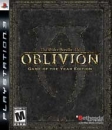http://www.gamespot.com/news/6275683.html
Pre-owned game sales account for a major chunk of GameStop's profits, and haveother retailers wanting a piece of the pie. However, a decision on Friday by the US Ninth Circuit Court of Appeals could imperil sales of pre-owned games--or any other software with a particularly worded end-user license agreement (EULA). The Court overturned a May 2008 decision by the US District Court for the Western District of Washington in the case of Vernor v. Autodesk. The original decision stated that Washington resident Timothy Vernor was within his rights to sell a sealed copy of Autodesk's AutoCAD design software he got at a garage sale on eBay.
Though the copy of the software was sealed, Autodesk's EULA--which not visible externally on the retail box--said that the software is only licensed to purchasers, not actually sold. It also said that the license cannot be transferred, so after purchase, the software had to be destroyed if not used. The Western Washington court's decision upheld the idea that customers own the software they purchase, commonly referred to as the "You bought it, you own it" principle. The Appeal Court's decision, however, undermines that idea if the software has "license only" language in its EULA. Tech blog Ars Technica pointed out that the EULAs used by Electronic Arts and many other publishers have similar language in their games. "This software is licensed to you, not sold," reads EA's EULA. "Access to the software requires software registration with the serial code enclosed with the software. Software registration is limited to one EA Account per serial code and is non-transferable." The EA EULA is for a PC game, which typically require acceptance of such terms to play. However, comparable wording can also be found in console game manuals, such as that of Take-Two Interactive's recent hit Red Dead Redemption. "THIS SOFTWARE IS LICENSED, NOT SOLD," reads the license agreement on Red Dead Redemption. (Capital letters in original.) "You agree not to: (a) Commercially exploit the software; (b) Distribute, lease, sell, rent or otherwise transfer the software, or any copies of the software, without the express consent of the licensor." (Emphasis added.) Inquiries sent to EA and Take-Two about the Appeal Court's decision were not answered as of press time. However, EA and other publishers have recently taken measures to deter pre-owned game sales, from which they earn no money. In EA's case, it is enclosing single-use codes in new games to both award extra downloadable content and enable online modes. The latter applies to all of the Redwood City, CA-based company's sports games, which will charge buyers of pre-owned games $10 extra to access online modes. THQ recently adopted a similar model for the online modes for its wrestling and mixed martial arts games.
-----------------------------------------------------------------------------------------------------
So, reselling used games might actually be deemed illegal. I don't know if it's actually gonna happen, but the foundation has certainly been laid now.


























































